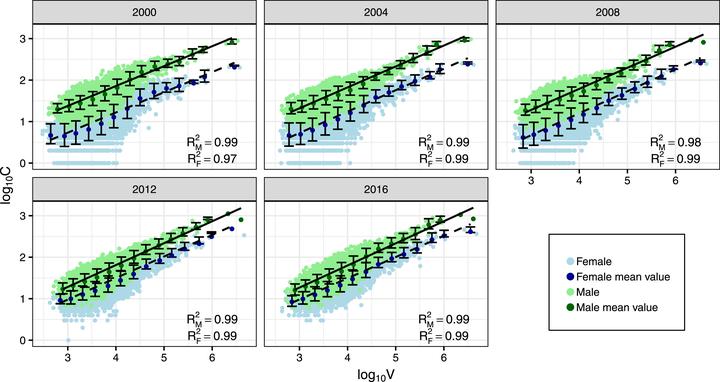
Abstract
Researchers of several areas have reported that there are still significant gender differences in their performances within different social systems, as in science and on-line communities, for example. This paper focuses on the gender difference in politic candidature processes, investigating the effect of the electorate size upon the candidate numbers, by considering the electorate of each Brazilian city and the respective number of candidates for Mayor and City Council Member (for women and men separately). We detected a sharp gap between the number of male candidates and number of female candidates, with the disadvantage occurring to greater intent in Mayoral elections. We also found non-linear mean correspondences, allometries. The allometric exponents display values very close to the City Council Member candidatures for women and men. However, they have notable smaller values for women than for men in Mayoral candidature. This shows a political hierarchy: the most influential position is related to the greater female underrepresentation.